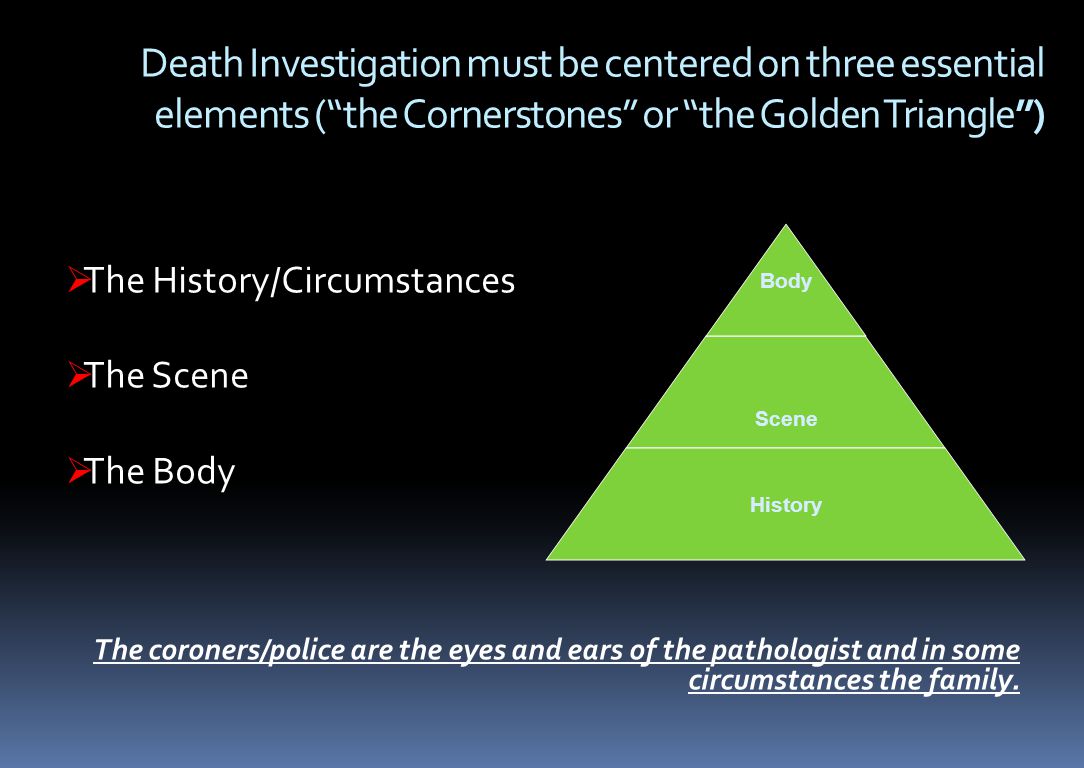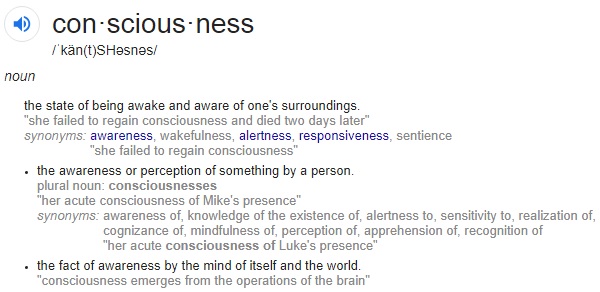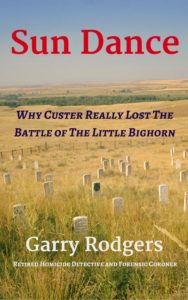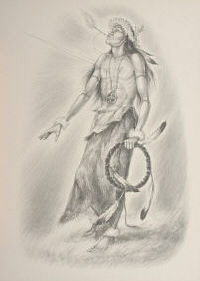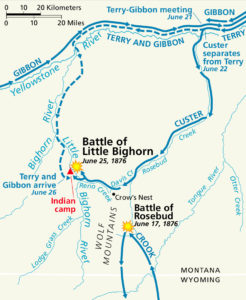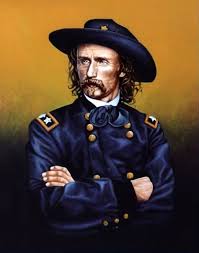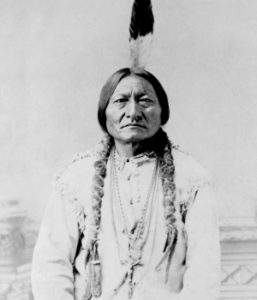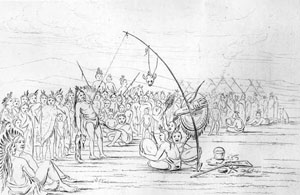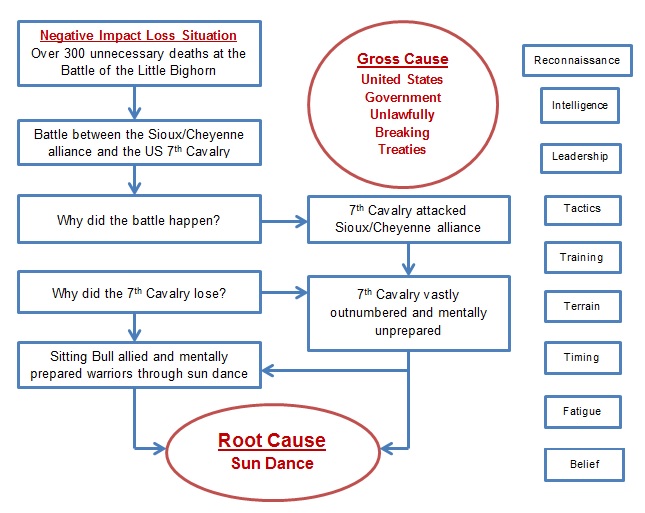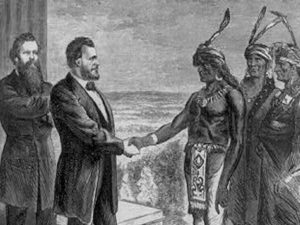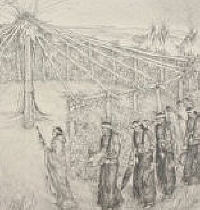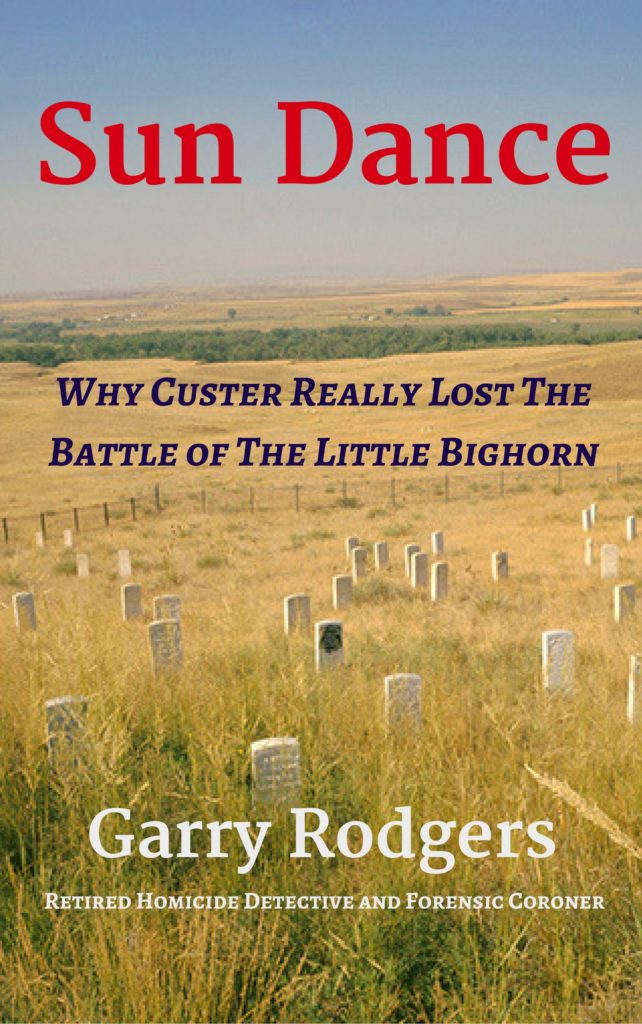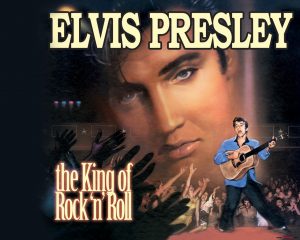 Elvis Presley suddenly dropped in the bathroom of his Graceland mansion on the afternoon of August 16, 1977. Elvis was rushed to Baptist Memorial Hospital in Memphis, Tennessee, where he was pronounced dead, then shipped to the morgue and autopsied the same afternoon. Three days later, the Memphis County coroner issued Elvis Presley’s death certificate stating the cause as hypertensive cardiovascular disease with atherosclerotic heart disease — a heart attack subsequent to high blood pressure and blocked coronary arteries.
Elvis Presley suddenly dropped in the bathroom of his Graceland mansion on the afternoon of August 16, 1977. Elvis was rushed to Baptist Memorial Hospital in Memphis, Tennessee, where he was pronounced dead, then shipped to the morgue and autopsied the same afternoon. Three days later, the Memphis County coroner issued Elvis Presley’s death certificate stating the cause as hypertensive cardiovascular disease with atherosclerotic heart disease — a heart attack subsequent to high blood pressure and blocked coronary arteries.
It was a rush to judgment. Toxicology results soon identified ten pharmaceutical drugs in Elvis’s system. Codeine was ten times the therapeutic level and the combination of other prescription drugs suggested a poly-pharmacy overdose. This revelation started immediate accusations of a cover-up and conspiracy theories quickly hinted at sinister criminal acts.
Four decades later, modern medicine and forensic science looked at the Presley case facts. The review indicated something entirely different from a heart attack or drug overdose really killed the King of Rock ‘n Roll. It said Elvis Presley accidentally died after long-term complications from earlier traumatic brain injuries (TBIs). TBIs are known as silent, stalking, and patient killers.
Looking back, it’s likely old accidental head injuries triggered events leading to Elvis Presley’s death.
From my experience investigating unexpected and unexplained sudden deaths, the accidental conclusion makes sense when you consider the totality of evidence in Elvis’s death. Setting aside media reports of gross negligence, arm-chair speculation of cover-up, and fan accusations that the King was murdered, there’s a simple and straightforward conclusion based on facts. But before examining the facts and knowing hindsight is 20/20, let’s first look at how coroners conduct sudden and unexplained death investigations.
Coroners are the judge of death. Their responsibility is establishing five main facts surrounding a death. Coroners are not to assign blame or fault. In the Presley case, the five facts determined at the immediate time were:
-
Identity of Deceased — Elvis Aaron Presley
-
Time of Death — Approximately 2:00 p.m. on Tuesday, August 16, 1977
-
Place of Death — 3754 Elvis Presley Boulevard, Memphis, Tennessee
-
Cause of Death — Heart attack
-
Means of Death — Chronic heart disease
 There’s a distinct difference between Cause of Death and Means of Death. Cause is the actual event. Means is the method in which death happened. Examples are cause being a ruptured aorta with means being a motor vehicle crash, or cause being massive cerebral interruption with means being a gunshot wound to the head.
There’s a distinct difference between Cause of Death and Means of Death. Cause is the actual event. Means is the method in which death happened. Examples are cause being a ruptured aorta with means being a motor vehicle crash, or cause being massive cerebral interruption with means being a gunshot wound to the head.
Once the facts are known, it’s the coroner’s duty to classify the Manner of Death. There are five universal manner of death classifications:
-
Natural
-
Homicide
-
Suicide
-
Accidental
-
Undetermined
Elvis Presley’s death was ruled a natural event, thought at the time being an acute cardiac event from existing cardiovascular disease. If the coroner determined Elvis died from a drug overdose, the ruling would have been accidental. No one ever claimed it was suicide or homicide.
One principle of death investigation is to look for antecedent evidence—preexisting conditions which contributed to the death mechanism or was responsible for causing or continuing a chain of events that led to the death.
Another principle of death investigation is examining the cornerstone triangle of Scene—Body—History. This compiles the totality of evidence or case facts. Given that, let’s look at the evidence and case facts in Elvis Presley’s death.
Scene
Elvis was found on his bathroom floor, face down in front of the toilet. It was apparent he’d instantly collapsed from a sitting position and there was no sign of a distress struggle or attempt to summon help. When the paramedics arrived, Elvis was cold, blue and had no vital signs. Rigor mortis had not set in so he’d probably expired within the hour. He was transported by ambulance to Baptist Memorial Hospital where a vain attempt at resuscitation occurred because “he was Elvis”.
 ER doctors declared Elvis dead at 3:16 p.m. He was moved to the morgue where an autopsy was promptly performed. There was no suggestion of suicide or foul play so there was no police investigation. The scene wasn’t photographed, nor preserved, and there was no accounting for what medications or other drugs might have been present at Graceland. There’s no official record of the coroner attending the scene as this was considered an in-hospital death and a routine occurrence.
ER doctors declared Elvis dead at 3:16 p.m. He was moved to the morgue where an autopsy was promptly performed. There was no suggestion of suicide or foul play so there was no police investigation. The scene wasn’t photographed, nor preserved, and there was no accounting for what medications or other drugs might have been present at Graceland. There’s no official record of the coroner attending the scene as this was considered an in-hospital death and a routine occurrence.
Body
Elvis was in terrible health. His weight was estimated at 350 pounds—gaining 50 lbs. in the last few months of his life. He was virtually non-functional at the end, being mostly bed-ridden and requiring permanent nursing care. Elvis suffered from an enlarged heart which was twice the size of normal and showed advanced evidence of cardiovascular disease in his coronary vessels, aorta, and cerebral arteries—certainly more advanced than a normal 42-year-old would be. His lungs showed signs of emphysema, although he’d never smoked, and his bowel was found to be twice the length of normal with a partially-impacted stool estimated to be four months old.
Elvis also suffered from hypogammaglobulinemia which is an immune disorder, as well as showed evidence of an autoimmune inflammatory disorder.
Toxicology tested positive for ten separate prescription medications but showed negative for illicit drugs and alcohol. The only alarming pharmaceutical indicator, on its own, was codeine at ten times the prescribed manner but not in lethal range.
History
Elvis was born on January 8, 1935 in Tupelo, Mississippi and had a twin brother who died at birth. As a youth, Elvis was active and healthy which continued during his time in the U.S. military and all through his early performing stage when he was a bundle of energy. He began experimenting with amphetamines, probably to enhance his performances, but shied from alcohol as it gave him violent tendencies.
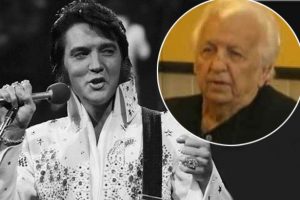 In 1967, Elvis came under the primary care of Dr. George Nichopoulos who was well-known to celebrities. Then, Elvis was 32 and weighed 163 pounds. His only known medical ailment was slightly high blood pressure, presumably due to his high-fat diet.
In 1967, Elvis came under the primary care of Dr. George Nichopoulos who was well-known to celebrities. Then, Elvis was 32 and weighed 163 pounds. His only known medical ailment was slightly high blood pressure, presumably due to his high-fat diet.
Also in 1967, Elvis’s health took a sudden turn with progressive pain, insomnia, hypertension, lethargy, irrational behavior and immense weight gain. Over his remaining years, Elvis was seen by a number of different doctors and was hospitalized a number of times, all the while resorting to self-medication with a wide assortment of drugs from dozens of sources.
Doctor Nick, as Nichopoulos was called, stayed as Elvis’s personal physician till the end. He was present at the death scene as well as during the autopsy. Doctor Nick concurred with the coroner’s immediate conclusion that the cause of death was a natural cardiac event resulting from an arrhythmia, or sudden interruption of heartbeat, and agreed that Elvis’s death was not due to a drug overdose.
When the toxicology report was released, it came with a qualifier:
Because the tox report appeared to contradict the autopsy report’s stated cardiac cause of death, a prominent toxicologist was asked to review the findings. His opinion was:
“Coupled with this toxicological data are the pathological findings and the reported history that the deceased had been mobile and functional within 8 hours prior to death. Together, all this information points to a conclusion that, whatever tolerance the deceased may have acquired to the many drugs found in his system, the strong probability is that these drugs were the major contribution to his demise.”
The Tennessee Board of Health then investigated Elvis’s death which resulted in proceedings against Doctor Nick.
 Evidence showed that during the seven and a half months preceding Elvis’s death—from January 1, 1977, to August 16, 1977—Doctor Nick wrote prescriptions for Elvis for at least 8,805 pills, tablets, vials, and injectables. Going back to January 1975, the count was 19,012.
Evidence showed that during the seven and a half months preceding Elvis’s death—from January 1, 1977, to August 16, 1977—Doctor Nick wrote prescriptions for Elvis for at least 8,805 pills, tablets, vials, and injectables. Going back to January 1975, the count was 19,012.
These numbers might defy belief, but they came from an experienced team of investigators who visited 153 pharmacies and spent 1,090 hours going through 6,570,175 prescriptions and then, with the aid of two secretaries, spent another 1,120 hours organizing the evidence.
The drugs included uppers, downers and powerful painkillers such as Dilaudid, Quaalude, Percodan, Demerol, and Cocaine Hydrochloride in quantities more appropriate for those terminally ill with cancer.
 Doctor Nick admitted to this. His defense was because Elvis was so wired on pain killers, he prescribed these medications to keep Elvis away from dangerous street drugs, thereby controlling Elvis’s addiction—addiction being a disease.
Doctor Nick admitted to this. His defense was because Elvis was so wired on pain killers, he prescribed these medications to keep Elvis away from dangerous street drugs, thereby controlling Elvis’s addiction—addiction being a disease.
One of the defense witnesses was Dr. Forest Torrent, a prominent California physician and a pioneer in the use of opiates in pain treatment who explained how the effects this level of codeine would have contributed to Elvis’s death.
Central to misconduct allegations was the issue of high codeine levels in Elvis at the time of death—codeine being the prime toxicological suspect as the pharmaceutical contributor. It was established that Elvis obtained codeine pills from a dentist the day before his death and Doctor Nick had no knowledge of it.
The jury bought it, and Doctor Nick was absolved of negligence in directly causing Elvis Presley’s fatal event.
Continuing Investigation
 Dr. Torrent was convinced there were other contributing factors leading to Elvis’s death. In preparation for Doctor Nick’s trial, Dr. Torrent had access to all of Elvis Presley’s medical records, including the autopsy and toxicology reports. Incidentally, these two reports are the property of the Presley estate and are sealed from public view until 2027, fifty years after Elvis’s death.
Dr. Torrent was convinced there were other contributing factors leading to Elvis’s death. In preparation for Doctor Nick’s trial, Dr. Torrent had access to all of Elvis Presley’s medical records, including the autopsy and toxicology reports. Incidentally, these two reports are the property of the Presley estate and are sealed from public view until 2027, fifty years after Elvis’s death.
Dr. Torrent was intrigued by the sudden change in Elvis starting in 1967. He discovered that while in Los Angeles filming the movie Clambake, Elvis tripped over an electrical cord, fell, and cracked his head on the edge of a porcelain bathtub. Elvis was knocked unconscious and had to be hospitalized. Dr. Torrent found three other incidents where Elvis suffered head blows, and he suspected Elvis suffered from what’s now known as Traumatic Brain Injury—TBI—and that’s what caused progressive ailments leading to his death.
Dr. Torrent released a paper titled Elvis Presley: Head Trauma, Autoimmunity, Pain, and Early Death. It’s a fascinating read—recently published in the credible medical journal Practical Pain Management.
 Dr. Torrent builds a theory that Elvis’s bathtub head injury was so severe it jarred brain tissue loose which leaked into his overall blood circulation. Later additional head injuries exacerbated the problem. This is now known to be a leading cause of autoimmune disorder which causes a breakdown of other organs. This progression was unknown in 1967 and Elvis went untreated. Side effects of TBIs include chronic pain, irrational behavior, and severe bodily changes such as obesity and enlarged organs like hearts and bowels.
Dr. Torrent builds a theory that Elvis’s bathtub head injury was so severe it jarred brain tissue loose which leaked into his overall blood circulation. Later additional head injuries exacerbated the problem. This is now known to be a leading cause of autoimmune disorder which causes a breakdown of other organs. This progression was unknown in 1967 and Elvis went untreated. Side effects of TBIs include chronic pain, irrational behavior, and severe bodily changes such as obesity and enlarged organs like hearts and bowels.
Today, TBI is a recognized health issue in professional contact sports as well as incidental to motor vehicle accidents and workplace falls or other head injury events.
 Dr. Torrent’s hypothesis holds that with a change in mental state and suffering chronic pain, Elvis Presley entered a ten year spiral towards death. He became hopelessly addicted to pain killers, practiced a terribly unhealthy diet and lethargic lifestyle, and resorted to the typical addict’s habit of sneaking a fix wherever he could. This led to early coronary vascular disease and, combined with his escalating weight and pill consumption, Elvis was a heart attack ready to burst.
Dr. Torrent’s hypothesis holds that with a change in mental state and suffering chronic pain, Elvis Presley entered a ten year spiral towards death. He became hopelessly addicted to pain killers, practiced a terribly unhealthy diet and lethargic lifestyle, and resorted to the typical addict’s habit of sneaking a fix wherever he could. This led to early coronary vascular disease and, combined with his escalating weight and pill consumption, Elvis was a heart attack ready to burst.
Recall that I used the term antecedent, like all coroners do when assessing a cause of death. Given Dr. Torrent’s observations—and all the facts compiled from forty years—if I were the coroner completing Elvis Presley’s death certificate today, I’d write it like this:
-
Identity of Deceased — Elvis Aaron Presley.
-
Time of Death — Approximately 2:00 p.m. on Tuesday, August 16th, 1977.
-
Place of Death — 3754 Elvis Presley Boulevard, Memphis, Tennessee.
-
Cause of Death — Cardiac arrhythmia/myocardial infarction, antecedent to hypertensive cardiovascular disease with atherosclerotic heart disease, antecedent to poly-pharmacy, antecedent to autoimmune inflammatory disorder, antecedent to traumatic brain injury/injuries.
-
Means of Death — Cumulative head trauma.
Therefore, I’d have to classify Elvis’s death as an accident.
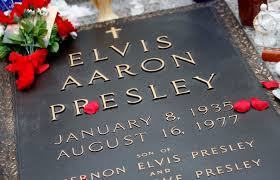 There’s no one to blame—certainly not Elvis. He was a severely injured and sick man. There’s no specific negligence on anyone’s part and definitely no cover-up or conspiracy of a criminal act.
There’s no one to blame—certainly not Elvis. He was a severely injured and sick man. There’s no specific negligence on anyone’s part and definitely no cover-up or conspiracy of a criminal act.
If Dr. Forrest Torrent is right, there simply wasn’t a proper understanding back then to clearly determine what really killed the King of Rock ‘n Roll.
* * *
Here’s the link to Dr. Torrent’s article Elvis Presley: Head Trauma, Autoimmunity, Pain, and Early Death as published in Practical Pain Management.
https://www.practicalpainmanagement.com/sites/default/files/images/2013/06/19/1.jpg
Fun Stuff With Elvis & John Fogerty

